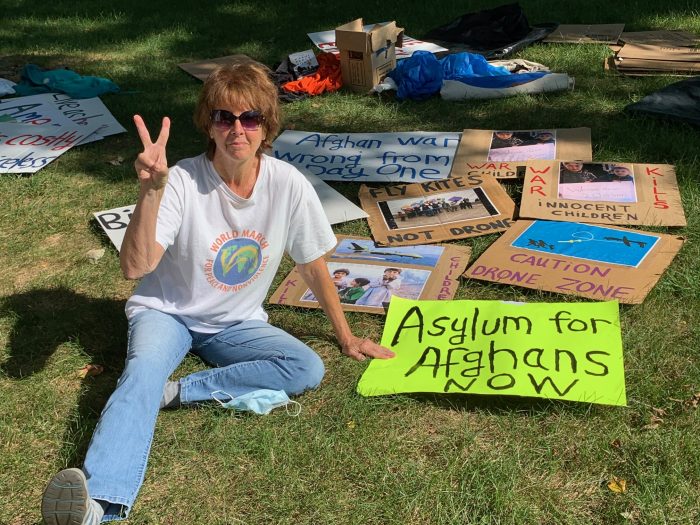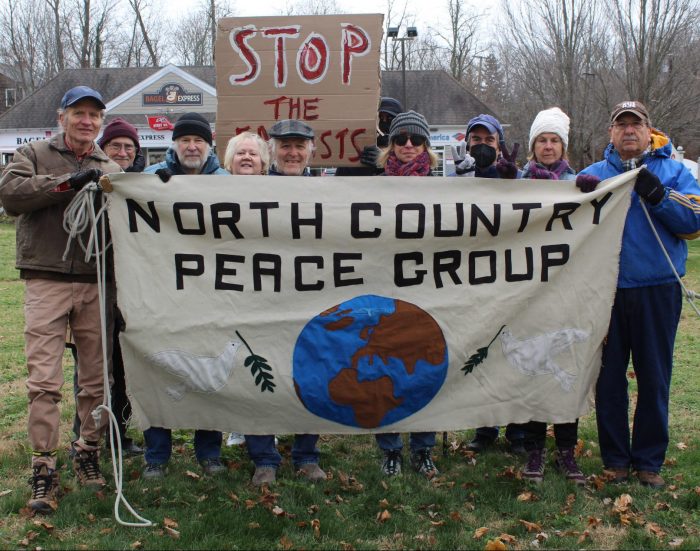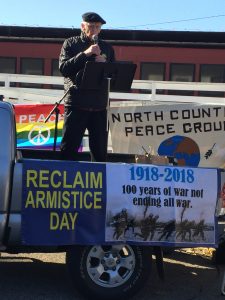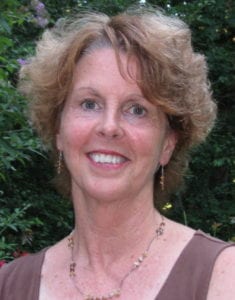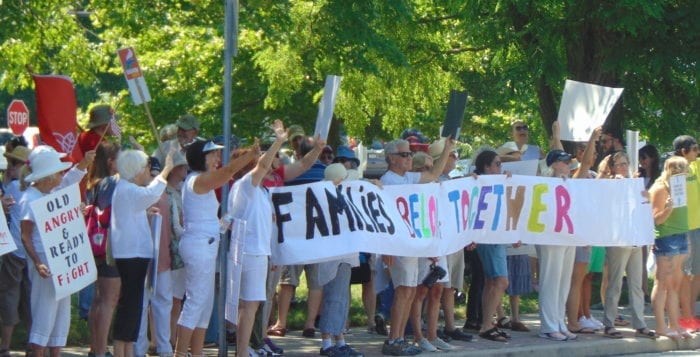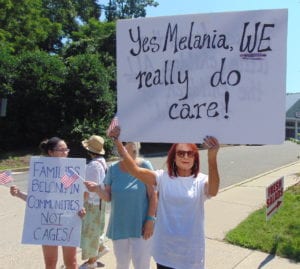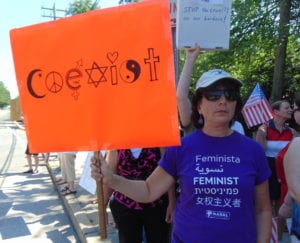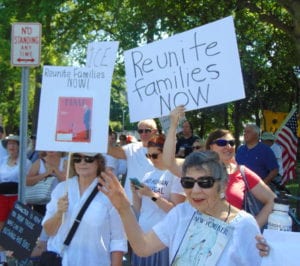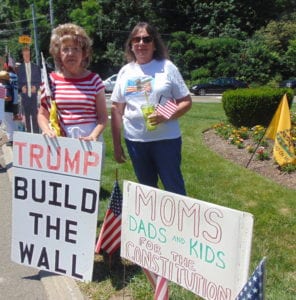By Mallie Jane Kim
Susan Perretti, of Setauket, is no armchair activist.
Through local advocacy and international action, friends say, Perretti lives out her long-held belief that peace is not simply the absence of violence but a way of looking at the world differently.
“You can’t give up on peace, and you can’t give up on justice,” said Perretti, a journalist by trade. “I’m not about to do that, and I’m 71 years old.”
Local advocacy:
North Country Peace Group
Perretti was among the original members of the North Country Peace Group, which occupies a Setauket street corner Saturday mornings to display anti-war and pro-peace signs — including in recent months signs calling for a cease-fire in the Israel/Gaza war.
Myrna Gordon, of Port Jefferson, met Perretti in December 2002 as the group formed to protest the then-imminent war with Iraq. “You really get to know somebody standing on the street corner like that; we are sisters in solidarity,” Gordon said. “We’ve been through every type of protest — anti-war demonstrations, ban the bomb, everything. We’ve seen it all.”
She said Perretti has played a vital role in initiatives by the group over the past 20 years, including an annual Mother’s Day reading of the names of Long Island soldiers who died serving in Iraq and Afghanistan — there were 56 as of 2019, according to a database hosted by Newsday. The peace group presents photos and biographies of the soldiers as well.
“We want to honor the soldiers and what they do, but we want these wars to stop,” Gordon said.
Perretti also led a response to the 2018 death of about 40 Yemeni schoolchildren after a Saudi-led coalition airstrike hit their field trip bus with what intelligence indicated was a U.S.-made bomb.
She obtained blue backpacks like those photographed at the scene, and the group laid them out in several places around Suffolk County, including their usual protest corner, in front of an Army recruiting center and a corner near then-U.S. Congressman Lee Zeldin’s [R-NY1] office.
International action:
Helping Afghan refugees
Perretti’s activism is not limited to raising awareness — she has also taken practical action.
As part of a global peace association that formed in the 2010s, Perretti developed a relationship over the years with a group of passionate, idealistic young men in Afghanistan over video calls administered by Kathy Kelly, 71, of St. Charles, Illinois.
These boys were concerned with women’s rights as well as taking care of widows and refugees, and according to Kelly, some of them had set up a school for street kids that included courses on nonviolence, alongside English and their regular subjects.
When the U.S. left Afghanistan to Taliban control in 2021, these “peace volunteers,” as Perretti referred to the young men in her recent article for peace website Pressenza, were among those suddenly in danger. The video-call members established a buddy system with them.
Over the next 14 months, Perretti kept in constant contact with her young friend, 21-year-old Mansoor, via text message while he escaped to Pakistan and she searched for a third country that might offer him asylum.
From her home in Setauket, Perretti wrote, she felt like she was journeying alongside this determined Afghan who called her “Mom.” One day, she heard gunfire in the background of a short video Mansoor sent her. “The graveness of his situation and my powerlessness to protect him were sobering,” she wrote.
In October 2022, Perretti finally met Mansoor in person at the airport in Toronto, where he is now studying to be a doctor, according to her article.
Kelly said she finds the journey of Perretti and Mansoor particularly encouraging because of their personal connection and Perretti’s consistency in aiding the young man and others like him.
“Not everybody can do all the work Susan has done, but everybody can aspire to share resources more radically, welcome people that might seem to be strangers and not feel divided by artificial borders,” Kelly said, adding that it’s easy to feel frustrated or hopeless when looking at world events. Stories like Perretti’s, she said, are “the antidote to cynicism.”
For her commitment to promoting peace both at home and abroad, TBR News Media recognizes Susan Perretti as a 2023 Person of the Year.

